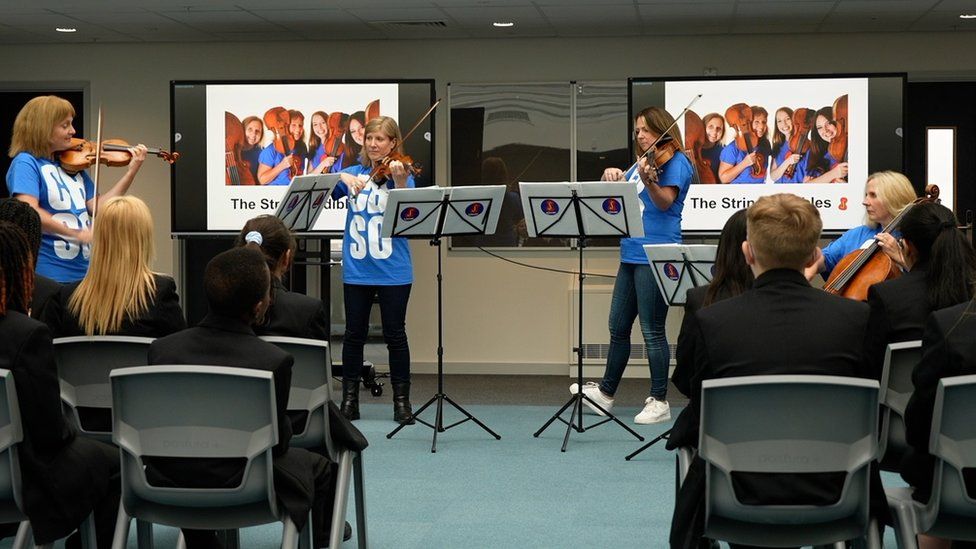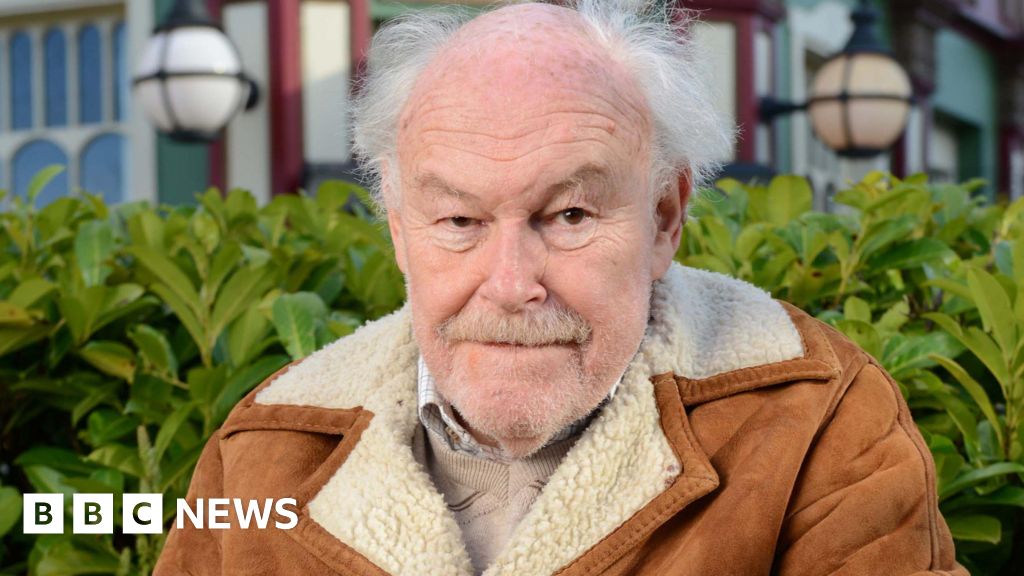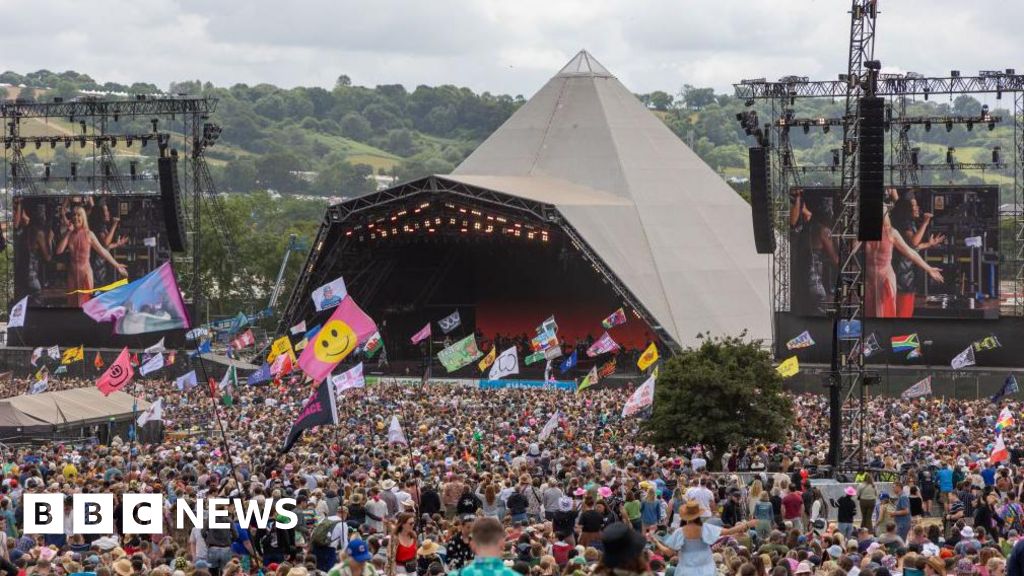ARTICLE AD BOX
 Image source, BBC/Neil Paton
Image source, BBC/Neil Paton
The City of Birmingham Symphony Orchestra's musicians held a workshop highlighting the importance of teamwork in an entertaining way
By Katie Razzall
Culture and media editor
The UK's first school partnered with a professional orchestra has opened its doors to pupils.
Shireland CBSO Academy and the City of Birmingham Symphony Orchestra offer pupils weekly workshops, performances and masterclasses and free instrumental tuition for at least two years.
Orchestra head Emma Stenning told the BBC there is "a crisis in music education in schools".
The Department for Education said it is "committed" to education in music.
"We remain committed to ensuring that every young person has access to a high quality music education," it told the BBC.
The brand new state school is in a former office block in Sandwell, one of England's most deprived boroughs.
It opened with 138 year sevens on 5 September, with more joining in the next few weeks. The BBC is the first media to be invited in since the academy started its new term.
Image source, BBC/Neil Paton
Image caption,Shireland CBSO Academy in West Bromwich is Britain's first school to partner with a professional orchestra
A state-of-the-art performance hall is being built, with ridged acoustic panelling and angled walls to ensure the best sound quality.
Music is also embedded into the academy curriculum.
Image source, BBC/Neil Paton
Image caption,Pupils at Shireland CBSO Academy learning West African drumming
Pupils studying the great fictional detective Sherlock Holmes, for example, learn how an understanding of music and rhythm can help them decipher the Morse code.
Principal David Green said the school follows the national curriculum.
"We are a completely normal school," he said.
"We have French, Art, Maths, Science - all the things you'd expect, but we have this really special partnership with the CBSO, which is giving these students a level of musical opportunity they just wouldn't get elsewhere".
Image source, BBC/Neil Paton
Image caption,Principal David Green told Katie Razzall that he was passionate about offering opportunities that students would not get elsewhere
His intention is for every student to study GCSE music, a subject which has seen a dramatic fall in take-up in recent years.
This summer, 29,730 pupils took the GCSE, down 45.2% since 2008.
Music A Level was studied by 4,930, which is down 47.9%.
Ms Stenning added: "There's not the funding, there's not the skill set, there's not the time made to study music.
"This school is here to buck that trend and prove what an amazing part of a young person's education music can be".
Image source, BBC/Neil Paton
Image caption,CBSO chief executive Emma Stenning [L] with chief conductor Kazuki Yamada and pupils
The Department for Education said it has allocated £79m per year in funding for its music hubs programme in England up to 2025, with £25m from 2024 to fund a variety of instruments.
Catherine Arlidge, a CBSO violinist whose "Stringcredibles" string quartet performed an interactive workshop for the children in their second week of term, told the BBC "it's devastating, there's a great inequity" when it comes to accessing music.
She added that music helps young people develop other skills including teamwork, resilience and creativity.
"Within music there's maths, because you're counting all the time, there's storytelling…"
For her it's the potential outcomes for the students that are "the most exciting thing about this new adventure".
CBSO isn't the first professional orchestra to work in a school.
In 2020 the Orchestra of the Age of Enlightenment announced it was moving into Acland Burghley School in North London, after the lease on its previous accommodation came to an end.
OAE pays rent, which augments the teaching budget. It rehearses in the school hall and involves students in its productions and performances.
Image source, BBC/Neil Paton
Image caption,Catherine Arlidge, CBSO violinist says "if you can make a cake or a sandwich, you can make music because you just need the ingredients and some kind of recipe"
For the CBSO, this new school partnership is partly about widening the talent pipeline to ensure future musicians come from more diverse backgrounds that reflect modern Britain.
But it's not just about turning out the next generation of musicians.
Whether the students want to be astronauts, politicians or teachers, soloists or conductors or if they want to work in marketing, lighting design or management, they'll learn transferable skills.
Everybody - they say - benefits from music being a part of their lives.

 1 year ago
32
1 year ago
32








 English (US) ·
English (US) ·